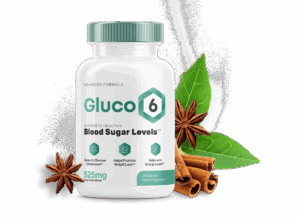Effective Tools for Managing Anxiety
Anxiety, a pervasive issue affecting countless individuals, often brings along a sense of helplessness. However, the good news is that various effective tools for managing anxiety exist. By exploring a combination of psychological techniques, lifestyle changes, and mindfulness practices, you can create a personal toolkit to counteract anxious thoughts and feelings. This comprehensive guide aims to provide insights into these tools, empowering you to take control of your mental health. With the right strategies, you can lead a more balanced and serene life.
Understanding the Root Causes of Anxiety
Exploring the root causes of anxiety brings us closer to managing it effectively. Genetic predispositions can significantly influence susceptibility to anxiety disorders. Some individuals may inherit genes that affect neurotransmitter balance, making them more prone to anxiety. Recognizing this genetic connection can guide the usage of tailored interventions, like cognitive therapies and medication, offering a customized approach to anxiety management.
Environmental factors, including upbringing and life experiences, can also trigger anxiety. A childhood surrounded by instability or trauma can shape one’s psychological response to stressors. By understanding these backgrounds, therapists tailor interventions that not only address symptoms but also heal underlying emotional wounds. Furthermore, current environments—stress at work or at home—can exacerbate anxiety. Learning to identify and alter these factors can reduce anxiety symptoms appreciably.
Lifestyle choices play a critical role as well. Poor diet, lack of exercise, and inadequate sleep can significantly contribute to heightened anxiety levels. Adopting healthier habits, such as incorporating nutrient-dense foods and regular physical activity, has been shown to alleviate anxiety symptoms. Our article on top nutritious superfoods for energy boost highlights foods that not only boost energy but can also improve mental clarity, reducing anxiety’s grip.
Recognizing these elements—genetic, environmental, and lifestyle—allows for a well-rounded approach to anxiety management. It empowers individuals to engage with effective tools, such as mindfulness practices, that address both the surface and root causes of their anxiety. It’s essential to remember that understanding anxiety’s origins doesn’t just highlight challenges but illuminates a path forward, guiding individuals toward better mental health through informed choices.
Effective Psychological Techniques for Anxiety
Managing anxiety can greatly benefit from effective psychological tools like cognitive-behavioral therapy (CBT), mindfulness, and exposure therapy. Each of these techniques operates on unique principles to reduce anxiety symptoms and enhance mental well-being.
Cognitive-behavioral therapy focuses on identifying and altering negative thought patterns that fuel anxiety. The approach teaches individuals to recognize irrational beliefs and replace them with positive, realistic thoughts. One significant advantage of CBT is its structured problem-solving nature plus the fact that it equips individuals with coping strategies they can use independently. CBT can be practiced with a therapist or through self-guided exercises, making it accessible and versatile.
Mindfulness is another powerful tool to combat anxiety. It involves paying attention to present experiences without judgment. Mindfulness practices promote relaxation and a heightened awareness that can disrupt obsessive worrying. Through meditation, mindful breathing, or simply being aware of one’s surroundings, mindfulness cultivates a mindset that embraces the present moment. This method has been linked to reduced symptoms of anxiety and mood enhancements. For those interested, exploring mindfulness further is easy with tools like meditation apps for stress relief.
Exposure therapy, meanwhile, is all about facing fears in a controlled and systematic way. Often used to treat phobias, it helps individuals slowly confront anxiety-provoking situations, decreasing avoidance behavior over time. When executed in therapy or under guidance, it gradually reduces anxiety, allowing individuals to function better in everyday situations. The success of exposure therapy lies in its ability to desensitize individuals to triggers that normally cause anxiety.
These psychological techniques do not operate in isolation. They can be integrated into holistic lifestyle changes for optimal results, such as regular exercise or maintaining a balanced diet. By coupling these practices with anxiety management tools, people can work towards a future where anxiety no longer controls their daily life.
Whether you choose cognitive restructuring, present-moment awareness, or systematic confrontation of your fears, these strategies collectively offer promising pathways to enhanced mental health and reduced anxiety.
Gluco6 Product
Lifestyle Changes as Effective Tools for Anxiety Management
Managing anxiety often requires an integrated approach where lifestyle changes can play a significant role. These changes are non-intrusive methods that seamlessly fit into daily routines, offering sustainable improvements in mental health. Let’s explore some pivotal lifestyle modifications that help alleviate anxiety.
Dietary choices can profoundly affect anxiety levels. A balanced diet that includes whole grains, fresh fruits, and vegetables can stabilize blood sugar levels and provide essential nutrients that support brain health. Incorporating foods rich in omega-3 fatty acids, like salmon or flaxseeds, has been linked with a reduced risk of anxiety. For detailed guidance on nutritious dietary choices, consider reviewing our article on balanced nutrition for optimal health.
Regular exercise is another crucial component in managing anxiety. Physical activity stimulates the production of endorphins—chemicals in the brain that act as natural painkillers and mood elevators. Whether it’s a morning run, a yoga session, or strength training, exercise serves as a powerful antidote to anxiety by enhancing self-esteem and overall well-being.
Sleep quality is also integral to mental health. A consistent sleep schedule helps regulate mood, cognitive function, and emotional resilience. Cultivating a relaxing bedtime routine and creating an ideal sleep environment tend to improve sleep quality. Consider practices such as limiting screen time before bed and maintaining a comfortable sleep setting.
Lastly, nurturing social connections significantly impacts anxiety management. Positive relationships offer emotional support and provide an outlet for sharing concerns and feelings. Engaging with community activities or simply catching up with friends can be therapeutic, mitigating feelings of isolation often associated with anxiety.
By integrating these lifestyle modifications—prioritizing nutrition, committing to regular exercise, ensuring sufficient sleep, and fostering social interactions—individuals can harness non-invasive, effective tools to manage anxiety. These changes not only bolster mental resilience but also enrich one’s overall quality of life.
Mindfulness and Meditation: Ancient Tools in Modern Anxiety Management
Mindfulness and meditation are two powerful practices for alleviating anxiety. These ancient techniques focus on grounding individuals in the present moment, helping to release the mental loops that often accompany anxious thoughts. By dedicating time to mindfulness, we cultivate a sense of awareness that allows us to observe our thoughts without judgment.
In practicing mindfulness, the most straightforward approach is breath-focused meditation. This technique involves directing attention solely to the breath, observing each inhale and exhale. When the mind begins to wander, gently bringing the focus back to the breath not only calms the mind but also builds resilience against stressors. Breath-focused meditation encourages a deeper connection with the body, which often serves as a counterbalance to the racing mind characteristic of anxiety.
Another profound technique is body scanning. This form of meditation invites us to concentrate on different parts of the body sequentially. Start from the crown of the head and move slowly towards the toes, acknowledging sensations, tension, and relaxation within each area. This heightened awareness of physical sensations can provide relief from excessive mental preoccupations and promote relaxation.
Modern-day technology has made these practices accessible to more people. Although rooted in ancient wisdom, many find engaging with these techniques through digital platforms beneficial. Apps dedicated to meditation offer guided sessions that help users navigate mindfulness practices. For those interested, exploring some of the best meditation apps for stress relief can be an excellent starting point.
Incorporating these tools into daily life doesn’t require extensive time commitments. Even five to ten minutes of mindfulness meditation can significantly impact mental health over time. Consistency is key, and gradually, these methods become a natural part of one’s routine, lending a hand in better anxiety management. As part of a holistic approach, these practices effectively integrate with other wellness activities, encouraging a balanced state of mind and fostering a sense of calm in the face of life’s challenges.
Final words Effective Tools for Managing Anxiety
In exploring these effective tools for managing anxiety, it’s vital to remember that the journey is unique for each individual. The strategies discussed provide a holistic approach, combining psychological methods, lifestyle changes, and ancient practices. Embrace these tools with patience and persistence, and you will cultivate a sense of peace and empowerment. I invite you to explore more articles on our site to deepen your understanding and continue this journey towards better mental health.




